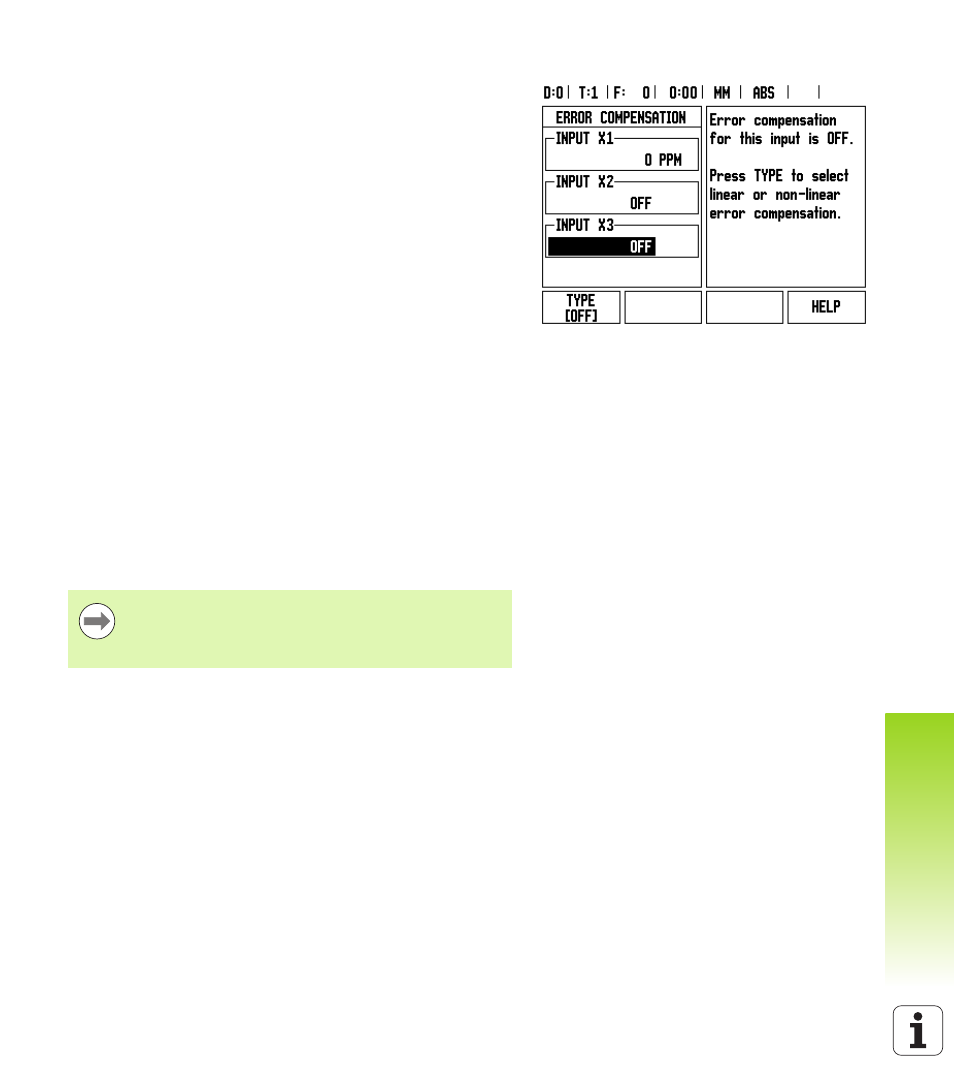Ii - 2 installation set up – HEIDENHAIN ND 522 User Manual
Page 75

ND 522/523
75
II
-
2
Installation
Set
up
Linear Error Compensation
Linear error compensation can be applied, if the results of the
comparison with a reference standard show a linear deviation over the
whole measuring length. In this case the error can be compensated by
the calculation of a single correction factor.
To calculate the linear error compensation use this formula:
Correction factor LEC = ((S – M) /M) x 10
6
ppm
with:
Example:
If the length of the standard used is 500 mm, and the measured length
along the X-axis is 499.95, then the LEC for the X-axis is
100 parts per million (ppm).
LEC = ((500 – 499.95) / 499.95) x 10
6
ppm = 100 ppm
(rounded to
the nearest whole number).
Once determined, the encoder’s error information is entered
directly. Press the TYPE soft key to select LINEAR compensation.
Enter the compensation factor in parts per million (ppm), and press
the Enter key.
Non-Linear Error Compensation
Non-linear error compensation should be applied, if the results of the
comparison with a reference standard show an alternating, or
oscillating deviation. The required correction values are calculated, and
entered in a table. ND 522/523 supports up to 200 points per axis. The
error value between two entered adjacent correction points is
calculated with linear interpolation.
Starting a Non-linear Error Compensation Table
Select Non-linear by pressing the TYPE soft key.
To start a new error compensation table, first press the EDIT TABLE
soft key. Press enter.
All correction points (up to 200) are equally spaced from the start
point. Enter the distance between each of the correction points.
Press the DOWN ARROW key.
Enter the table’s start point. The start point is measured from the
scale’s reference point. If this distance is not known, move to the
location of the start point, and press TEACH POSITION. Press
Enter
.
S
measured length with reference standard
M
measured length with device at axis
Non-linear error compensation is only available on scales
with reference marks. If non-linear error compensation has
been defined, no error compensation will be applied until
the reference marks have been crossed.
